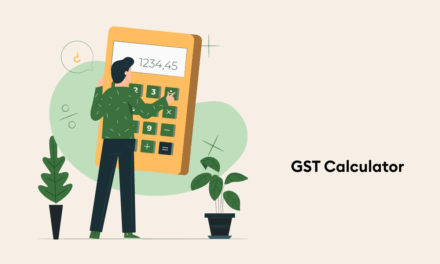Stepping into the world of personal finance and managing your investments can be exciting and overwhelming. With your first paycheck comes numerous responsibilities, and one of the smartest ways to manage your money wisely is with proper planning, including investing through a Demat account and maintaining a good credit score to manage your financial health in the long run.
In this article, we’ll explore some of the essential steps you should take as a first-time earner to manage and grow your finances in an innovative way.
Step 1: Start Investing with a Demat Account
One of the smartest things a first-time earner must do is begin investing early. Gradually, diversify your portfolio by investing in stocks, mutual funds and ETFs.
What is a Demat account?
Also known as a Dematerialised account, it is a digital account that stores your financial securities electronically. This account helps investors safely hold their assets, streamlines the process, eliminates the need for managing lengthy paperwork and share certificates, and allows investors to invest from anywhere.
Why is a Demat online account necessary for first-time investors?
- According to the Securities and Exchange Board of India (SEBI) guidelines, it is mandatory for every investor to open an account to maintain transparency and prevent fraudulent activities.
- Buying and selling securities can be done with just a few clicks on a smartphone.
- It enables users to track and manage their portfolios, allowing them to diversify their investments with ease.
- Online processing has removed the risk of theft, loss, and damage to physical certificates.
- It’s a good idea to start with a small amount and then gradually increase your investment over time.
Step 2: Build a Smart Savings Plan
While opening a Demat account and investing is important, it is also essential to build a savings habit. Savings are a safety net that allows you to fulfil your short-term goals or manage emergencies.
Essential tips to consider for first-time earners
- Allocate 50% of your income to essentials, 30% to wants, and 20% to investments and savings.
- Create an emergency fund and save at least three to six months’ worth of expenses.
- Avoid taking on high amounts of debt, as it can negatively impact your financial health and CIBIL score.
- Create your monthly budget, analyse your expenses and make a plan accordingly.
Step 3: Understanding and Maintaining a Healthy Credit Score and Profile
A credit score is a three-digit number ranging from 300 to 900 that specifies your creditworthiness. For first-time earners, it is essential to build a strong credit score to secure easy loans in the future and apply for credit cards.
Why does the CIBIL score matter?
- Lenders use your credit score to determine whether you are eligible for loans like personal, vehicle or a home and for credit card applications.
- A higher credit score (potentially more than 700) can get you loans at lower interest rates and flexible terms and conditions.
Tips to improve your credit score
- Pay your debts and bills on time, as missed payments can negatively impact your score.
- Don’t apply for multiple credits at the same time.
- Try using less than 30% of your credit card limit.
- Regularly check your CIBIL score report and report errors, if there are any.
Final Thoughts
Building a safe and secure financial system is a path that begins with using the right tools and developing the right habits. To open Demat account, ensure you use a reputed platform like Bajaj Finserv, which is user-friendly, a one-stop, safe and secure. Bajaj Finserv allows you to open a zero-cost Demat account, charges low brokerage fees, offers budget-friendly subscription plans, and provides easy access to the website and app.
So, ensure you take charge of your finances, develop the right habits and start your investing journey the smart way.





